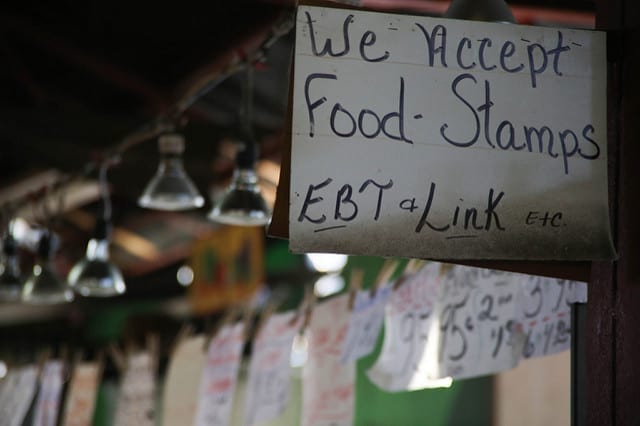Days before Congress is due to enter a showdown centering on the fate of Dreamers and other immigrants, the Trump administration announced it may refuse permanent residency applications from individuals subsisting on government aid.
As reported by Reuters, the White House is mulling over a proposal to limit green cards for foreigners make use of public benefits such as food stamps or welfare.
Green card applicants would be affected if they applied for or used assistance-type programs, or if their American-born children did the same.
The proposal is being constructed by the Department of Homeland Security, which suggests scouring the records of individual immigrants for use of certain taxpayer-funded programs. Using some unknown metric, officials could determine whether an alien is bound to be a public burden or productive member of society.
Reuters gives several examples of what checks may encompass – whether an applicant for permanent residency enrolled their child in a government pre-school program or received subsidies for utility bills and health insurance premiums.

The draft, writes Reuters, represents a swift departure from America’s longstanding policy on immigration applications. Since 1999, authorities are ‘specifically’ barred from evaluating an individual’s use of ‘non-cash benefits’ while issuing fresh green cards.
“Non-citizens who receive public benefits are not self-sufficient and are relying on the U.S. government and state and local entities for resources instead of their families, sponsors or private organizations,” says the Department of Homeland Security draft. “An alien’s receipt of public benefits comes at taxpayer expense and availability of public benefits may provide an incentive for aliens to immigrate to the United States.”
Receiving public aid, according to Reuters, could weigh against an applicant – even if the intended recipients of aid were the immigrant’s children, rather than him or herself.
“The administration is committed to enforcing existing immigration law, which is clearly intended to protect the American taxpayer,” said DHS spokesman Tyler Houlton. “Any potential changes to the rule would be in keeping with the letter and spirit of the law – as well as the reasonable expectations of the American people for the government to be good stewards of taxpayer funds.”
The changes, if put into effect, could pose possible consequences for hundreds of thousands of legal immigrants now residing within the United States.
Conspicuously absent from the document – at least the excerpts of it posted on Reuters – is recognition of the fact that many immigrants either pay or have paid taxes into the same programs they may be penalized for using.
The Department of Homeland Security’s proposal changes a longstanding rule that limits “public charges” from becoming permanent residents. But in the 1999 definition of “public charge,” the term is interpreted to mean an individual who’s primarily dependent upon the state or federal government for subsistence.
The DHS’s expanded definition now includes immigrants who depend on “any government assistance in the form of cash, checks or other forms of money transfers, or instrument and non-cash government assistance in the form of aid, services, or other relief.”
Immigration advocates are afraid that some families may be hesitant to apply for residency they’d otherwise be qualified to attain.
“It’s going to scare a lot of people into yanking their children off of needed healthcare, school programs, child nutrition programs, basic sorts of subsistence-level programs that have kept the population healthy and employable,” said Charles Wheeler of Catholic Legal Immigration Network, Inc.
Sources
Exclusive: Trump administration may target immigrants who use food aid, other benefits
Exclusive: Trump’s draft plan to punish legal immigrants for sending US-born kids to Head Start


Join the conversation!